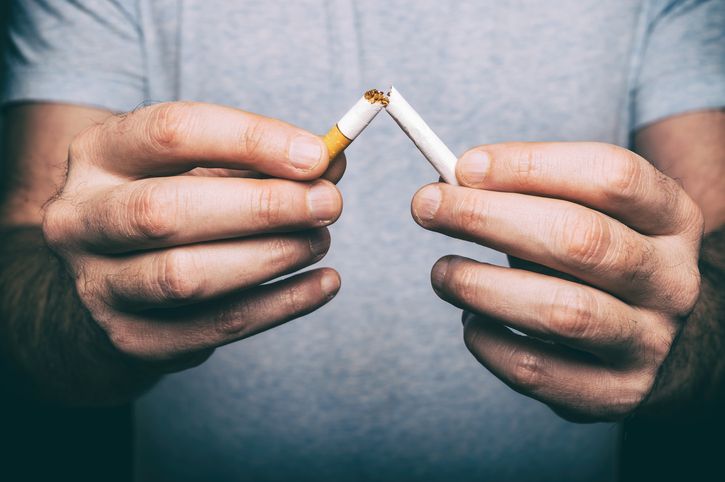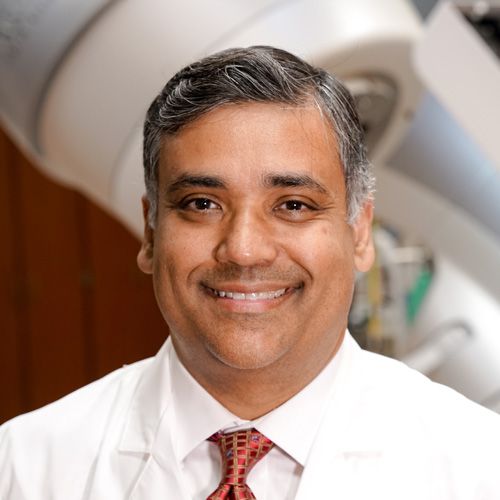Dr. Anurag Singh and team note survival rates across non-smokers, smokers and those who recently quit
- Large, single-institution study looked at smoking status and chemoradiation
- Patients who recently quit smoking saw 20% improvement in long-term survival
- Research is featured in JAMA Network Open
BUFFALO, N.Y. — While tobacco smoking has been shown to reduce the efficacy of radiation therapy among patients with head and neck cancers, a new study from Roswell Park Comprehensive Cancer aims to examines cancer treatment outcomes of smokers.
The research, published in JAMA Network Open, examined 518 Roswell Park patients diagnosed with head and neck cancers and were former or current smokers, or have never smoked. Current smokers utilized Roswell Park Cessation Services for 30-days prior to starting treatment. All patients underwent curative chemotherapy and radiation.
While previous research has shown that smoking can affect patients with human papillomavirus-positive (HPV) head and neck cancers, investigators noted that survival rate in currently smoking patients with HPV-positive tumors was the same as those who have HPV-negative tumors. Those who recently quit saw a 20% improvement in long-term survival.
“We found that former smokers had the same outcomes as those who had never smoked, even in those who had just quit smoking,” says Anurag Singh, MD Director of Radiation Research and Head & Neck Radiation Services at Roswell Park. “Our findings suggest that doctors should strongly encourage cessation services to current smokers ahead of treatment considering this significant increase in survival rate.”
Additionally, researchers discovered that 22 pack years of smoking could be utilized as a threshold to estimate treatment outcomes – patients with more pack years than that were significantly more likely to have poor survival rates. A pack year is determined by the number of packs smoked a day multiplied by the number of years a person has smoked
Dr. Singh and team look to utilize these findings to educate patients and physicians on the importance of quitting smoking even after a cancer diagnosis and prior to treatment.
The paper’s first author is Sung Jun Ma, MD, senior resident with the Department of Radiation Medicine.
Additional information about Roswell Park Cessation Services can be found here.
This research was funded in part by Roswell Park’s Core Grant from the National Cancer Institute (project no. P30CA016056).
###
Roswell Park Comprehensive Cancer Center is a community united by the drive to eliminate cancer’s grip on humanity by unlocking its secrets through personalized approaches and unleashing the healing power of hope. Founded by Dr. Roswell Park in 1898, it is the only National Cancer Institute-designated comprehensive cancer center in Upstate New York. Learn more at www.roswellpark.org, or contact us at 1-800-ROSWELL (1-800-767-9355) or ASKRoswell@RoswellPark.org.
Rebecca Vogt, Media Relations Specialist
716-845-4919; rebecca.vogt@roswellpark.org

